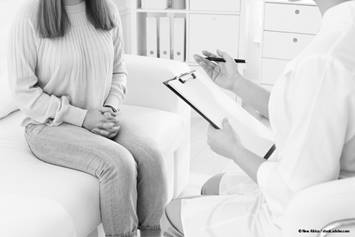Chlamydia
Chlamydia is a sexually transmitted infection (STI) caused by the germ Chlamydia trachomatis. Anyone that is sexually active is at risk of getting chlamydia.
What Is Chlamydia?
Chlamydia (kla-MID-ee-ah) is a sexually transmitted infection (STI) caused by the germ Chlamydia trachomatis. Anyone that is sexually active is at risk of getting chlamydia. Those who have had more than one sexual partner are at a higher risk of getting infected. Most people do not have symptoms or know they are infected. They can give the infection to others without knowing it. Any vaginal, oral, or anal contact with genitalia (vagina or penis) can pass the germ from one person to another.
How Chlamydia Spreads
- vaginal sex
- oral sex
- anal sex
- contact between genitals
- contact between genital fluids and eyes
- during vaginal delivery from an infected mother to baby
- Chlamydia can cause eye infections or pneumonia in newborns.
Severe Chlamydia
If treated early, the infection can be cured. If not treated, it can cause severe damage.
- For those born female, severe chlamydia could lead to pelvic inflammatory disease (PID). PID occurs when the infection spreads to the uterus, fallopian tubes, and/or ovaries. This can make you sterile (unable to get pregnant) and cause long-term pelvic pain.
- For those born male, chlamydia can cause an irritation of the urethra (urinary tube). If not treated, it can spread to the epididymis. This is where sperm is stored.
What Are the Signs and Symptoms of Chlamydia?
Chlamydia can be in the body for a long time with no signs. Possible symptoms are:
- male at birth – pain when urinating (peeing), mucus coming out of the penis, fever, swollen scrotum, or pain around the bladder, groin, or rectum
- female at birth – pain when urinating, discharge from the vagina, fever, chills, vomiting, unusual menstrual bleeding, or pain with sex or in the belly
How Is Chlamydia Diagnosed?
See your health care provider if you think you have chlamydia or have had sex with someone that you know has chlamydia. See your provider even if you do not have symptoms. You need to be tested for the infection.
- Tell your health care provider if there is any chance you may be pregnant.
- Your provider will use one or all of the following tests based on your symptoms:
- urine sample
- vaginal swab
- rectal swab
How Is Chlamydia Treated?
- Your health care provider will prescribe antibiotic medicine if you have chlamydia. For the infection to completely go away, you must take all of the medicine.
- Wait for 1 week after you and your partner(s) are treated before having sex. During the first 7 days, you can still spread the infection.
Treatment for Partners
- You and your partner(s) must be treated. Treatment not only protects your sexual partner(s), but it also keeps you from getting infected again.
- If you do not think your partner(s) will get treated on their own, tell your health care provider. They may be able to write a prescription for your partner’s treatment. This is called expedited partner therapy (EPT).
- In the Columbus area, your partner(s) can be treated for free at the Columbus City Health Department, 240 Parsons Avenue, Columbus, Ohio 43215. You can call there at (614) 645-7417. If you live outside of Columbus, call your local health department.
Preventing Future Infection
Abstinence (not having sex) is the best way to avoid other STIs and HIV. If you do have sex, these things might help prevent the spread of STIs:
- Limit your number of sexual partners. Know your partner(s) and their sexual history.
- Use a condom every time you have sex, the whole time you have sex.
- Have an extra condom with you in case the one you are using breaks.
- Get tested for other STIs and HIV. Having chlamydia can increase your risk of these other infections.
Follow-up
- You and your partner(s) must be treated and have a follow-up health care visit if the symptoms do not go away.
- Come back for ALL follow-up appointments.
- Get re-tested in 3 months. People who are infected with chlamydia once are more likely to get it again.
More Information
If you have any questions, call the Adolescent Medicine Clinic at (614) 722-2450. You can also call the National STD Hotline at (800) 232-4636, 8 a.m. to 11 p.m., Monday through Friday, or you can get information at http://www.ashastd.org.
Helping Hands Patient Education Materials
Written and illustrated by medical, nursing and allied health professionals at Nationwide Children's Hospital, Helping Hand instructions are intended as a supplement to verbal instructions provided by a medical professional. The information is periodically reviewed and revised to reflect our current practice. However, Nationwide Children's Hospital is not responsible for any consequences resulting from the use or misuse of the information in the Helping Hands.
HH-I-38 | ©1985, revised 2021, Nationwide Children’s Hospital



